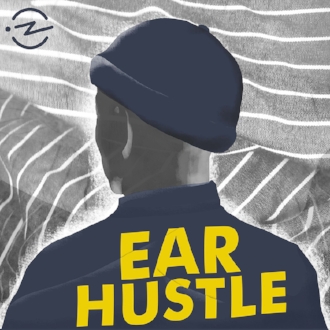Podcast of the Week: EAR HUSTLE

Private prisons should be abolished entirely and nonviolent offenders should never see prison time. Maybe you don’t agree with me on that sentiment, but Americans of all stripes are currently having to confront their ideas of justice in the face of what have become an increasingly obvious problems with how we currently handle criminal justice in this country. Mass incarceration means that today 2.3 million people are currently incarcerated in some capacity, and they are disproportionately people of color. There’s a lot of information to read and watch about the criminal justice system as a whole, but surprisingly little of it comes from the mouths of prisoners themselves. Even if you’re of the opinion that most people in prison deserve to be there, you still can’t really deny their right to be heard and understood as a population of human beings who also live in this country. All this leads us to EAR HUSTLE, a brand new podcast created by prisoners inside San Quentin State Prison, Earlonne Woods and Antwan Williams, in collaboration with Bay area artist Nigel Poor.
EAR HUSTLE gets its title for the prison slang term for eavesdropping on other people’s conversations, which is precisely what all good podcasting really is about: careful and selective eavesdropping. So far there’s only been one episode of the show, but it’s about as good a podcast as I’ve heard this year from any podcast. The debut tracks the issue of “cellies,” the term for inmates who share a four foot by nine foot cell in the prison. Mostly, the episode is funny and surprisingly unsentimental. The prisoners interviewed here briefly mention what they are incarcerated for before speaking practically about the issues of finding a compatible person to share a cell with. A good portion of the episode is devoted to interviews between two brothers both incarcerated in San Quentin who, for a while, were sharing a cell. They quickly discovered that despite their familial bond they actually weren’t suited for each other in the slightest, and their contrasting perspectives are as amusing as they are insightful. All of these conversations are framed by the fact that co-host Earlonne Woods is currently trying to find a new cell mate of his own. When Nigel Poor, the host from outside prison who helps get the recordings to the wider world, asks Earlonne if the process of finding a cellie feels like dating, he gets predictably uncomfortable, but the ensuing conversation that the pair have is thoughtful, heartwarming, and practical. If the premier episode is any indication, EAR HUSTLE will do a remarkable job at bridging the seemingly vast divide between prison life and civilian life.
This is what podcasting should really be about. If you consider what the granddaddy of podcasts, THIS AMERICAN LIFE, was founded on, that ordinary people should be covered with the same level of acute interest as anything on the nightly news, Ear Hustle seems like the perfect extension of that ethos. Prisoners are people too, and by listening to their stories, we give them the chance to be afforded the dignity our warped incarceration system attempts to deny them. Felons in this country are stripped of their right to vote, they are stripped of their access to welfare services, and employers are allowed to deny them work based on their record; in other words, they serve their time and are still stripped of their full rights as citizens. You and I can do little to tangibly grant prisoners their legal personhood again, but we can afford them their human dignity by listening to their voices. Suffice it to say, I am thrilled by the possibilities presented by EAR HUSTLE and cannot wait to see what episodes lay ahead for this exceptional podcast.



